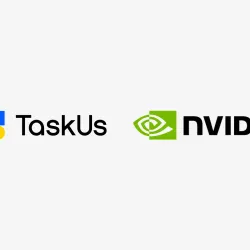Industry Knowledge
The Impact of Review Bombing on Businesses and Platforms
Businesses, no matter what industry, thrive on consumer feedback. User-generated reviews directly influence potential customers' perceptions, which can greatly affect a company’s success. In fact, 92% of people check online feedback before they even go to a restaurant1.
The online review system is a double-edged sword. Negative and biased reviews can spread just as fast as positive feedback, making it easier for bad actors to tank the reputation of a business by simply publishing a series of unsolicited fake customer reviews. This occurrence is called review bombing.
Review bombing is generally defined as an internet phenomenon where multiple users coordinate the spread of a mass of targeted fake reviews across social media platforms, with the sole purpose of presenting a business in a negative light. Gaming, retail, and the travel industry are three of the most affected sectors by review bombing. Fake customer reviews influence $791 billion of Ecommerce services’ spending in the US alone2.
Patterns of Review Bombing
Our Policy Research Lab observed a significant increase in review bombing cases across digital channels. Through a five-step research methodology, we saw patterns that commonly indicate fake review solicitation—leading Us to develop ways to effectively address negative biased reviews.
Our observations brought three patterns to light:
- Review bombings often coincide with a social occurrence.
We monitored several social media platforms that experience a considerable amount of review bombing cases. From our observation, we have gathered that poor customer experience facilitates review bombing. Customers typically call out or highlight an action taken by a person or business that they deem as wrong or unjustified, in an attempt to exclude them from the community or ban them from the platform.
While there are instances where it is justifiable to highlight wrongdoings that result in bad customer service, review bombs take it to the next level by making it their personal goal to tarnish the name of a business. For instance, after a pizzeria in North Carolina required proof of vaccination for its employees and patrons, a user posted a video with the intent of "canceling" the restaurant. The comments on the video show hashtags such as #letsallleavethemareview, resulting in an influx of fake product reviews on the pizzeria's social media platforms.
- Review bombings are commonly posted within a short time span.
We also found out that review bombing solicitations cause a series of chain reactions that reflect negatively on the overall review ratings of businesses. Users who take part in review-bombing often encourage other users to do the same. This results in a number of negative biased reviews posted within a short time period, lowering rating scores and public perception drastically.
We observed such occurrences after tracking several videos on social media platforms that incite review bombing. In the case of a resort in Florida, they received a batch of reviews the same day a video was posted asking people to leave bad reviews, all of which included similar information to what was stated in the video.
- Review bombings express users’ dismay or joy regarding COVID-19-related topics.
The COVID-19 pandemic heavily impacted the travel industry—including how travelers use review platforms. We spotted several cases of “review bombs” relating to the pandemic and the subsequent vaccine releases.
We saw, for example, a significant increase in review bombs that targeted businesses implementing COVID-19 safety measures. Establishments, including bars and restaurants, that required vaccination were being hit with one-star reviews on several travel consulting review platforms. Many users were using the platforms to express their opinions about COVID-19 vaccines and mask mandates instead of citing their actual experiences. They used terms in their reviews related to "medical apartheid,’’ ‘’health discrimination,’’ "fraudulent scientific germany,’’ "segregation," "nazi regime," and many more.
In response to this, review platforms including Yelp and Tripadvisor strengthened their Trust and Safety policies. Yelp has put in place an alert to notify their content moderation team of unusual activity on their site. They are also able to freeze certain pages while any reviews that violate Yelp’s content guidelines are investigated. Tripadvisor also monitors user-generated reviews closely. When a volume spike occurs, an automatic system is launched for review bombing, triggering a lockdown notice to prevent anyone from submitting a review for that business for a set period of time.
Our Recommendations
Our Policy Research Lab developed these recommendations to help accurately detect review bombing early on and to significantly minimize the impact of these schemes on businesses.
- Put in place an automatic flagging system.
Automation helps detect common hashtags and music clips that are trendy and used to incite review bombing, making it easier and quicker to identify review bombs and prevent further damage to businesses.
- Apply a temporary suspend feature.
Having a feature that allows the temporary suspension of users to post reviews when some indication of review bombing is detected gives more time for the social media moderation team to investigate and provide the right countermeasure when such instances occur.
- Develop policies and internal guidelines.
In order for moderators to investigate or escalate when coordination is spotted, developing robust policies and internal guidelines is a must. This will serve as the moderators’ bible on the proper way to mitigate review bombing.
Addressing Review Bombing
Under the Trust and Safety service line, our unique and dedicated Policy Research Lab uses the knowledge of our domain experts together with cutting-edge technology to dive deep and bring off-platform analysis to our client-partners, monitoring the evolution of harmful narratives including the immediate threat of review bombing to businesses. This allows Us to produce actionable insights and policy recommendations specifically designed to address these issues, ultimately providing a safer space for consumers.
References

We exist to empower people to deliver Ridiculously Good innovation to the world’s best companies.
Services








